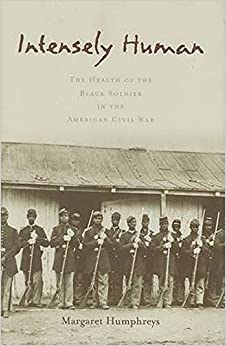By Margaret Humphreys (NHC Fellow, 2004–05)

Baltimore: Johns Hopkins University Press, 2008
From the publisher’s description:
Black soldiers in the American Civil War were far more likely to die of disease than were white soldiers. In Intensely Human, historian Margaret Humphreys explores why this uneven mortality occurred and how it was interpreted at the time. In doing so, she uncovers the perspectives of mid-nineteenth-century physicians and others who were eager to implicate the so-called innate inferiority of the black body.
In the archival collections of the U.S. Sanitary Commission, Humphreys found evidence that the high death rate among black soldiers resulted from malnourishment, inadequate shelter and clothing, inferior medical attention, and assignments to hazardous environments.
While some observant physicians of the day attributed the black soldiers' high mortality rate to these circumstances, few medical professionals—on either side of the conflict—were prepared to challenge the "biological evidence" of white superiority. Humphreys shows how, despite sympathetic and responsible physicians' efforts to expose the truth, the stereotype of black biological inferiority prevailed during the war and after.
Subjects
History / Medicine / American Civil War / Health Care / Military History / History of Medicine / Soldiers / Racism / African American History / War /Humphreys, Margaret (NHC Fellow, 2004–05). Intensely Human: The Health of the Black Soldier in the American Civil War. Baltimore: Johns Hopkins University Press, 2008.